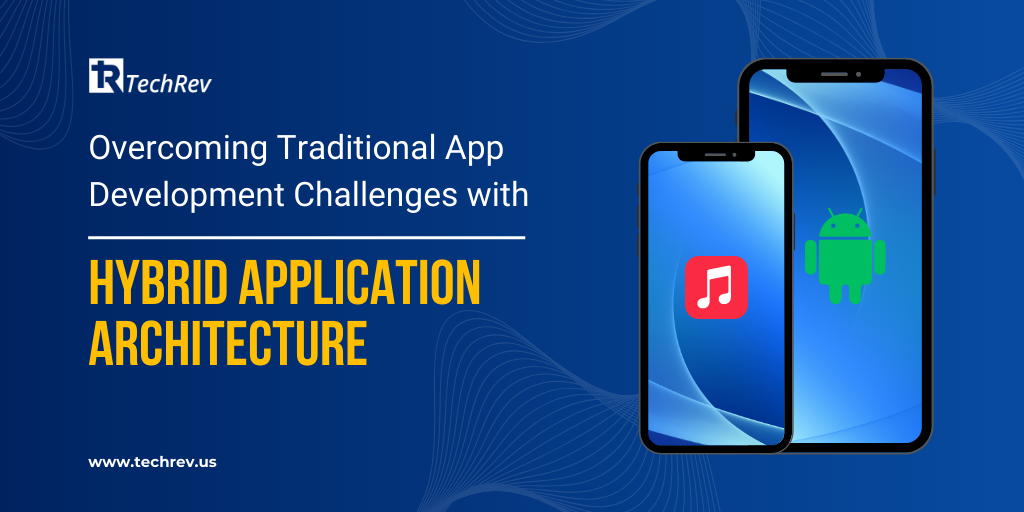
The app development for native or web, comes with its strengths and weaknesses. For this, the recently gaining popularity and preferred solution hybrid mobile app architecture offers a solution that combines the strengths of both approaches.
Hybrid apps offer a unique advantage by utilizing an internet connection through an embedded web browser within the app. These apps function similarly to native apps, providing a seamless user experience. The integration of native device features is achieved through specialized plugins, allowing the app to access functionalities like the camera, GPS, and notifications. Despite these complex integrations, the underlying web browser and plugins remain unrecognizable to users, ensuring a smooth and intuitive interface. This combination of web and native technologies makes hybrid apps a versatile and efficient solution for app development.
Do you know
Hybrid app development is on the rise, with 57% of developers using hybrid frameworks in 2023 and the market expected to grow from $11.9 billion in 2022 to $35.2 billion by 2028. This approach offers a cost-effective solution, with development costs 30% lower and easier maintenance than native apps
Hybrid apps offer the unique advantage of cross-platform compatibility, allowing development teams to write code once and deploy it across multiple devices and operating systems. This approach ensures that hybrid apps can deliver performance on par with optimized native apps, providing users with a seamless experience. Additionally, hybrid apps enhance security and connectivity, similar to web apps, making them a robust choice for modern app development. This combination of efficiency, performance, and security makes hybrid apps an attractive option for developers looking to maximize their resources while ensuring broad compatibility and top-notch functionality.
Ionic + Capacitor: Hybrid Tools for Developing Robust Web Apps
Hybrid application development offers important tool for the hybrid app development.
Capacitor is a powerful, free, and open-source platform that empowers developers to build cross-platform applications using standard web technologies. By leveraging Capacitor, developers can transform their existing web apps into native applications, gaining access to native platform features through a versatile plugin API, pre-made plugins, a command-line tool, and native platform SDKs for Android and iOS.
One of the standout features of Capacitor is its ability to integrate seamlessly with the Ionic Framework, a mobile UI toolkit that works harmoniously with leading frontend frameworks such as Angular, React, and Vue. This integration ensures that web apps not only function like native applications but also deliver a polished user experience with components like model view controllers, modals, navigation bars, and camera integration.
By incorporating Ionic and Capacitor into hybrid app development processes, teams can effectively navigate the complexities of native mobile app architectures. This combination offers a multitude of benefits, including accelerated development cycles, cost efficiency, and a unified codebase for multiple platforms. This approach allows development teams to focus on creating high-quality, performance-optimized applications that provide users with a seamless and intuitive experience, regardless of the device they are using.
Streamlined Feature Development with Ionic and Capacitor
Creating a standout app in a crowded market requires a feature-rich solution tailored to your audience’s needs. Traditional native development often means spending excessive time reimplementing business logic across platforms. Ionic and Capacitor streamline this process by enabling cross-platform development with a single codebase. This allows your team to focus more on building innovative features rather than redundant coding tasks, ensuring feature parity and faster deployment. By leveraging these tools, you can enhance efficiency and deliver a consistent, engaging user experience across all platforms.
Quick Response to User Feedback
Even the best-planned apps aren’t perfect at launch. With Ionic and Capacitor, you can quickly adapt to user feedback, make updates, and push changes seamlessly. Thanks to a unified architecture, you only need to modify your code once, allowing for more comprehensive testing before release.
Optimize Performance, Speed, and Functionality
With Ionic and Capacitor, your team can thoroughly test performance and functionality, quickly identifying and fixing potential issues. This leads to a faster, more responsive app ready for launch.
Keep Costs in Check
Developing multiple native mobile apps increases costs and demands more team resources. Ionic and Capacitor streamline this process by enabling hybrid app development. By writing a single set of code, you can support various devices and operating systems, reaching a wider audience without escalating costs.
Conclusion
Embracing a hybrid approach in mobile app development can significantly enhance your project’s success. Traditional Android or iOS frameworks often impose limitations, but hybrid tools like Ionic Framework and Capacitor offer the flexibility to innovate and improve user experience. By integrating these tools into your workflow, you empower your team to unleash their creativity, optimize performance, and deliver superior apps. It’s time to rethink your mobile app architecture strategy and adopt hybrid development to stay ahead in the competitive mobile landscape
FAQ
1. What is hybrid app architecture?
Hybrid app architecture combines elements of both native and web applications. It allows developers to use a single codebase for multiple platforms, leveraging web technologies like HTML, CSS, and JavaScript, while still accessing native device features.
2. What are the benefits of using hybrid app architecture?
Hybrid app architecture offers several benefits, including reduced development costs, faster time-to-market, and the ability to reach a broader audience. It allows for easier maintenance and updates since changes are made to a single codebase that works across multiple platforms.
3. How does hybrid app architecture impact performance?
While hybrid apps may have slightly lower performance than fully native apps, modern frameworks like Ionic and Capacitor have significantly minimized these differences. They allow for near-native performance and offer a responsive and smooth user experience.
